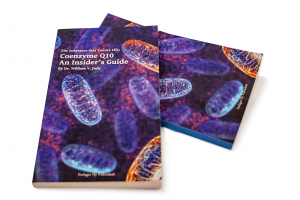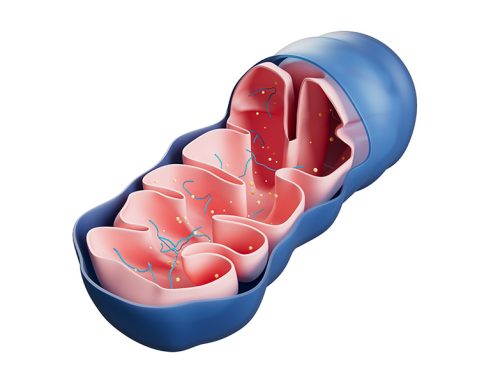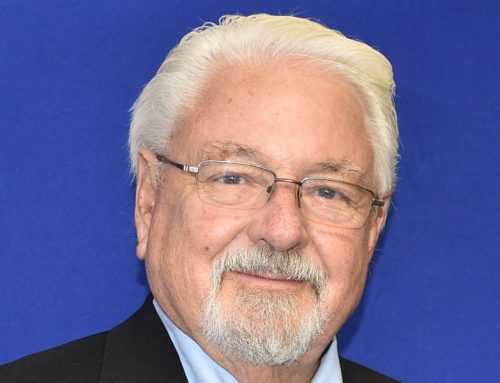Both Coenzyme Q10 and NADH blood levels have been shown to be sub-optimal in patients diagnosed with chronic fatigue syndrome [Castro-Marrero 2013; Maes 2009].

Dr. Judy regards mitochondrial dysfunction, reduced immune function, and increased oxidative stress as biological explanations for the inverse association between CoQ10 and NADH status and the severity of chronic fatigue syndrome.
In chronic fatigue syndrome, patients have the following symptoms:
- fatigue that persists even after rest and sleep
- generalized chronic pain
- lack of motivation for physical and mental exertion
- disruptions in concentration and memory
- changes in sleep patterns and duration
Chronic fatigue syndrome is a severe disabling condition without a good prognosis. There is no universally recognized treatment mode.
CoQ10 and NADH Combined Supplementation in Chronic Fatigue Syndrome
Now a randomized controlled trial published in 2021 shows that supplementation of chronic fatigue syndrome patients with 200 mg of Coenzyme Q10 and 20 mg of NADH daily for 12 weeks has statistically significant health benefits:
- reduction in the patients’ perception of cognitive fatigue
- reduction in the patients’ scores on the Fatigue Impact Scale
- improvement in Health-Related Quality of Life
- differences in sleep duration at four weeks
- difference in habitual sleep efficiency at eight weeks
The researchers in Barcelona, Spain, concluded that the study findings support the combined supplementation use of Coenzyme Q10 and NADH as a safe and well-tolerated therapeutic option for improving the symptoms of chronic fatigue syndrome [Castro-Marrerro 2021].
Why CoQ10 Supplementation for Chronic Fatigue Syndrome?
We know that Coenzyme Q10 has the following modes of action:
- acting as an electron carrier in the mitochondria and as a coenzyme for mitochondrial enzymes [Gutierrez-Mariscal 2019; Raizner 2019, 2021]
- preventing oxidative stress in heart failure [Di Lorenzo 2020]
- improving endothelial function [Gao 2012]
- reducing low-grade systemic inflammation [Fan 2017]
CoQ10 Supplementation Alone for Chronic Fatigue Syndrome

I have a chapter about Coenzyme Q10 and chronic fatigue syndrome in my book Insider’s Guide to Coenzyme Q10, available from amazon.com. ISBN: 978-87-7776-186-7.
In 1993, Dr. Karl Folkers and I reported the results of a cross-over clinical trial in which we had three groups of study participants:
A: 100 mg of Coenzyme Q10 daily to chronic fatigue syndrome patients for six months and then placebo for six months
B: 300 mg of Coenzyme Q10 daily to chronic fatigue syndrome patients for six months and then placebo for six months
C: 100 mg of a matching placebo to healthy control study participants for 12 months
What happened? The CoQ10 treatment increased the patients’ CoQ10 concentrations in skeletal muscle tissue by 48% (100-mg daily dose) and by 60% (300-mg daily dose).
The chronic fatigue syndrome patients responded well to the CoQ10 treatment and improved their exercise time and their recovery time.
However, we observed two things:
1) The chronic fatigue syndrome patients definitely improved with the CoQ10 treatment, but they were not able to attain the same exercise time and recover time as was the norm in the control group.
2) When the chronic fatigue syndrome patients were switched to the placebo treatment, they relapsed to their baseline levels. In other words, it is necessary to continue the CoQ10 treatment. For chronic fatigue syndrome patients, it is a life-long treatment option. It is important that the chronic fatigue syndrome patients take their CoQ10 supplements regularly and with meals.
Why NADH Supplementation Combined with Coenzyme Q10?
NADH is the reduced form of nicotinamide adenine dinucleotide (NAD+). Like Coenzyme Q10, NADH is a naturally occurring coenzyme that is a key component of the electron transport chain responsible for the production of ATP in the mitochondria, i.e. essential for the process of energy generation in the cells.
Also like Coenzyme Q10 in its reduced form, ubiquinol, NADH acts as a powerful antioxidant, neutralizing harmful free radicals and reducing the extent of oxidative damage to the cells.
Earlier CoQ10 + NADH Study
In a 2016 study, researchers administered chronic fatigue syndrome patients Coenzyme Q10 plus NADH and then observed a significant reduction in maximum heart beat during a cycle ergometer test at week 8 versus baseline (P = 0.022). Perception of fatigue also showed a decrease through all follow-up visits in active treatment group versus placebo (P = 0.03). However, pain and sleep did not improve in the active group [Castro-Marrero 2016].
Summary: Daily CoQ10 and NADH Supplementation for Chronic Fatigue Syndrome
Safety
Castro-Marrero et al. report that the safety data show that few adverse effects have been associated with CoQ10 and NADH supplementation in studies enrolling patients with other conditions such as cardiovascular disease. In their studies of chronic fatigue syndrome patients, they have seen no relevant treatment-related adverse events.
They conclude that oral Coenzyme Q10 plus NADH supplementation is safe and well-tolerated.
Absorption and Bio-Availability
It is important to note that not all commercially available CoQ10 products are equally well absorbed. Getting the manufacturing process right costs money; therefore, the less expensive CoQ10 products may be a waste of money.
It is best to search out a CoQ10 product with published absorption and bio-availability and clinical efficacy outcomes.
Sources
Castro-Marrero J, Cordero MD, Saez-Francàs N, Jimenez-Gutierrez C, Aguilar-Montilla FJ, Aliste L, Alegre J. Could mitochondrial dysfunction be a differentiating marker between chronic fatigue syndrome and fibromyalgia? Antioxidants Redox Signal. 2013;19:1855–1860.
Castro-Marrero J, Cordero MD, Segundo MJ, Sáez-Francàs N, Calvo N, Román-Malo L, Aliste L, Fernández de Sevilla T, Alegre J. Does oral coenzyme Q10 plus NADH supplementation improve fatigue and biochemical parameters in chronic fatigue syndrome? Antioxid Redox Signal. 2015 Mar 10;22(8):679-85.
Castro-Marrero J, Sáez-Francàs N, Segundo MJ, Calvo N, Faro M, Aliste L, Fernández de Sevilla T, Alegre J. Effect of coenzyme Q10 plus nicotinamide adenine dinucleotide supplementation on maximum heart rate after exercise testing in chronic fatigue syndrome – A randomized, controlled, double-blind trial. Clin Nutr. 2016 Aug;35(4):826-34.
Castro-Marrero J, Segundo MJ, Lacasa M, Martinez-Martinez A, Sentañes RS, Alegre-Martin J. Effect of dietary coenzyme Q10 plus NADH supplementation on fatigue perception and health-related quality of life in individuals with myalgic encephalomyelitis/chronic fatigue syndrome: a prospective, randomized, double-blind, placebo-controlled trial. Nutrients. 2021:13:2658.
Di Lorenzo A, Iannuzzo G, Parlato A, Cuomo G, Testa C, Coppola M, D’Ambrosio G, Oliviero DA, Sarullo S, Vitale G, Nugara C, Sarullo FM, Giallauria F. Clinical Evidence for Q10 Coenzyme Supplementation in Heart Failure: From Energetics to Functional Improvement. J Clin Med. 2020 Apr 27;9(5):1266.
Fan L, Feng Y, Chen GC, Qin LQ, Fu CL, Chen LH. Effects of coenzyme Q10 supplementation on inflammatory markers: A systematic review and meta-analysis of randomized controlled trials. Pharmacol Res. 2017 May;119:128-136.
Gao L, Mao Q, Cao J, Wang Y, Zhou X, Fan L. Effects of coenzyme Q10 on vascular endothelial function in humans: a meta-analysis of randomized controlled trials. Atherosclerosis. 2012 Apr;221(2):311-6.
Gutierrez-Mariscal FM, Yubero-Serrano EM, Villalba JM, Lopez-Miranda J. Coenzyme Q10: From bench to clinic in aging diseases, a translational review. Crit Rev Food Sci Nutr. 2019;59(14):2240-2257.
Judy WV & Folkers K. Management of chronic fatigue syndrome patients with Coenzyme Q10. 8th. Intl. Symp. Biomed. and Clin. Aspects of CoQ. 1993:55.
Maes M, Mihaylova I, Kubera M, Uytterhoeven M, Vrydags N, & Bosmans E. Coenzyme Q10 deficiency in myalgic encephalomyelitis/chronic fatigue syndrome (ME/CFS) is related to fatigue, autonomic and neurocognitive symptoms and is another risk factor explaining the early mortality in ME/CFS due to cardiovascular disorder. Neuro Endocrinology Letters. 2009;30(4):470-476.
Raizner AE. Coenzyme Q10. Methodist Debakey Cardiovasc J. 2019 Jul-Sep;15(3):185-191.
Raizner AE, Quiñones MA. Coenzyme Q10 for Patients With Cardiovascular Disease: JACC Focus Seminar. J Am Coll Cardiol. 2021 Feb 9;77(5):609-619.
The information presented in this review article is not intended as medical advice and should not be used as such.
30 September 2021









Leave A Comment